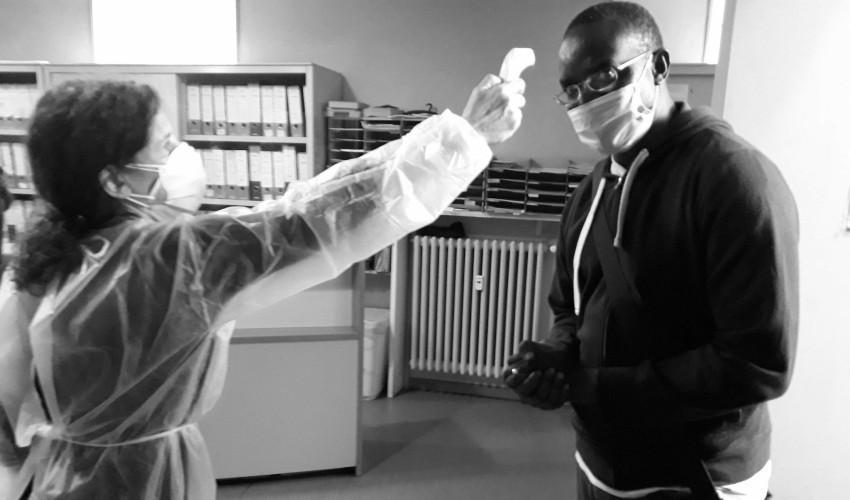
We All Lose When Immigrants Can't Access Health Care. Especially in a Lockdown
DURING THE SPRING LOCKDOWN, UNDOCUMENTED IMMIGRANTS' ACCESS TO PRIMARY CARE IN MILAN HALVED AND THEIR HOUSING CONDITIONS DETERIORATED, MAKING IT DIFFICULT TO COMPLY WITH COVID PUBLIC HEALTH MEASURES, ACCORDING TO RESEARCH BY CARLO DEVILLANOVA IN COLLABORATION WITH THE NAGA ASSOCIATIONUndocumented immigrants may be the invisible victims of a COVID-19 lockdown, as happened in the Metropolitan Area of Milan last spring, and their lack of access to health services, combined with the difficulty in monitoring their conditions, raises public health concerns.
Carlo Devillanova, Associate Professor at Bocconi and affiliate to the COVID Crisis Lab, documented these dynamics in a study recently published in the European Journal of Public Health, co-authored with collaborators of NAGA, a nongovernmental organization (NGO) that offers free primary health care to undocumented immigrants in Milan. Estimates indicate that there are around 50,000 undocumented immigrants in the Metropolitan Area of Milan, originating mainly from Egypt, Peru, Philippines, China and Morocco.
NAGA makes around 10,000 visits a year and its records provide a unique dataset about immigrants’ health. As the first COVID-19 outbreak started in Lombardy on 21 February 2020, Professor Devillanova and his co-authors compared data from 2 January to 21 February (Pre-COVID) with data from 26 February to 23 April (Post-COVID outbreak, but before the start of Ramadan month, which affects the behavior of Muslim patients).
They observed that daily number of visits halved (-48.4%) during the lockdown, probably due to the limitation of mobility during that period and fear of checks by law enforcement.
The share of patients with acute respiratory infection (compatible with COVID-19 symptoms) rose from 12% in the Pre period to 16% in the Post one, reaching 27% in the last week of March.
In normal times, NAGA patients who need further care are addressed to two public clinics that, under a special agreement with the NGO, admit undocumented immigrants, but this possibility was limited during the first two weeks of the Post period and both clinics closed on 8 March.
Undocumented immigrants’ housing conditions worsened during the lockdown, with the share of homeless individuals among NAGA patients nearly doubling in the Post period (from 8.8% to 17%). Thus, even if NAGA provided all patients with COVID public health recommendations, their housing conditions made it difficult to adopt public health measures such as handwashing, social distancing, self-isolation, or quarantine. Finally, being undocumented, they are excluded from any income support schemes and might continue working even if ill.
“Providing undocumented immigrants with access to primary care services is both a question of individual dignity and of public health,” Professor Devillanova concludes, “and the issue becomes particularly pressing in times of emergency and lockdown such as those we are living.”
Although, according to Italian law, undocumented immigrants have access to the National Healthcare Service (NHS), the implementation of the law differs across regions. Lombardy does not provide primary care to undocumented migrants and, since general practitioners act as gatekeepers to more specialized care, they can only access the NHS through emergency departments, thus making prevention very difficult.
Carlo Devillanova, Cinzia Colombo, Primo Garofoli, Anna Spada, “Health Care for Undocumented Immigrants During the Early Phase of the COVID-19 Pandemic in Lombardy, Italy”, in European Journal of Public Health, published online in advance, DOI: 10.1093/eurpub/ckaa205.
Opening Photo: NAGA
by Fabio Todesco
